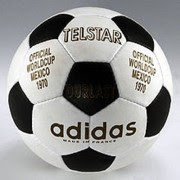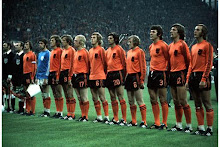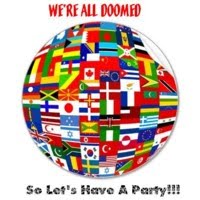The European General Court has ruled that UK football fans can continue to watch major events on free-to-air TV in future. Both FIFA and UEFA - pound signs flashing in their eyes as they worked themselves into a tool-stiffening orgy of debased greed - had challenged a decision allowing the UK government to designate the World Cup and European Championship finals as free-to-watch events. Both are on the UK list of 'protected events' of national sporting importance. The EGC now says that an EU member state can prohibit the exclusive broadcast of games at these two events on pay-TV. The court also dismissed FIFA's action against Belgium for showing all World Cup matches on free-to-air TV in that country. FIFA and UEFA had argued the current set-up interfered with their ability to sell television rights at the best price. And to make vast wads of cash that could then be used in sleazy behind-the-scenes deals and backhanded activities and vote rigging when it comes to who hosts major competitions. Allegedly. They had said there was no reason why all games at tournaments should be shown free on UK television, as part of a list the national sporting 'crown jewels' which have to be made available to everyone to watch. The court disagreed. Which was funny. The EGC said 'the court holds that the [European] Commission did not err in finding that the United Kingdom's categorisation of all World Cup and Euro matches as "events of major importance" for their societies are compatible with European Union law. Consequently, FIFA's and UEFA's actions are dismissed.' They then added 'and the greedy, corrupt bastards can go screw themselves.' Only, they did it quietly whilst no one was listening. Apparently. The EGC, formerly the Court of First Instance, is the first European court where a decision is made. Appeals about its rulings are taken to the European Court of Justice. FIFA and UEFA now have two months to launch any appeal. The two football bodies had argued that any games featuring England, Scotland, Wales or Northern Ireland would have still been shown on TV for free, as would have the finals and semi-finals of the tournaments. But the rest of the sixty four World Cup matches and thirty one European Championship matches would not have been free in the UK. UEFA had said the listing infringed its property rights, as it resulted 'in a restriction of the way in which the applicant may market the television rights to the Euro [championships].'  It had also said that showing the entire tournament on free-to-air in the UK had led to 'a disproportionate and unjustified distortion of competition on the relevant market.' An EU directive gives all member states the right to designate sporting and cultural events of national interest for broadcast on free-to-air TV stations. Hence, the Broadcasting Act 1996 gives the British government the power to designate key sporting and other events as 'listed events.' The purpose of the list is to ensure that such events are made available to all television viewers, particularly those who do not have subscription television. 'This obviously is a bad day for rights holders,' said Daniel Geey, competition and EU regulatory expert at Field Fisher Waterhouse law firm. But, a good day for everyone else, it should be noted in the interests of balance. 'FIFA and UEFA argued that the listing legislation constrained their ability to sell the broadcasts at the maximum commercial level to the widest possible selection of broadcasters.' Geey said that the two football bodies had emphasised to the court they only wished to sell the rights to games that did not include the relevant member state's teams. 'The General Court ruling however stated that the World Cup and European Championships are to be regarded as single events rather than individual games and that individual matches should not be divided up into "prime" or "non-prime" matches,' Geey added. And he said that the ruling would have the knock-on effect of insulating free-to-air broadcasters from pay-TV competition. In December 2008, the Labour government announced a review of the list, carried out by an independent advisory panel headed by former FA chief executive David Davies. The panel reported in November 2009 with its recommendations. 'I have read with great interest the summary of the findings of the European court,' Davies told BBC News. 'It's remarkable how they reflect the debate and conclusions that our own panel on listed events came to eighteen months ago. Personally, they don't alter my view that for the UK at least, the best solution in the future would be a voluntary agreement on the broadcasting of events of national resonance. If the will is there among the broadcasters and the sporting governing bodies, this is achievable, and maybe today's judgement could bring that agreement nearer ' In July last year, the Coalition government said that any decision on the future of the list would be deferred until 2013 - after the conclusion of digital switchover in 2012. The UK Department of Culture, Media and Sport said they were pleased with the result. 'We welcome the decision from the EU and continue to support the principle of protecting sports events for free-to-air coverage,' a spokesman said. Emma McClarkin MEP, the Conservative sports spokesman in the European Parliament, added: 'We need to ensure that the crown jewels of our national sports are accessible to everyone. I hope that FIFA and UEFA will not appeal this ruling.'
It had also said that showing the entire tournament on free-to-air in the UK had led to 'a disproportionate and unjustified distortion of competition on the relevant market.' An EU directive gives all member states the right to designate sporting and cultural events of national interest for broadcast on free-to-air TV stations. Hence, the Broadcasting Act 1996 gives the British government the power to designate key sporting and other events as 'listed events.' The purpose of the list is to ensure that such events are made available to all television viewers, particularly those who do not have subscription television. 'This obviously is a bad day for rights holders,' said Daniel Geey, competition and EU regulatory expert at Field Fisher Waterhouse law firm. But, a good day for everyone else, it should be noted in the interests of balance. 'FIFA and UEFA argued that the listing legislation constrained their ability to sell the broadcasts at the maximum commercial level to the widest possible selection of broadcasters.' Geey said that the two football bodies had emphasised to the court they only wished to sell the rights to games that did not include the relevant member state's teams. 'The General Court ruling however stated that the World Cup and European Championships are to be regarded as single events rather than individual games and that individual matches should not be divided up into "prime" or "non-prime" matches,' Geey added. And he said that the ruling would have the knock-on effect of insulating free-to-air broadcasters from pay-TV competition. In December 2008, the Labour government announced a review of the list, carried out by an independent advisory panel headed by former FA chief executive David Davies. The panel reported in November 2009 with its recommendations. 'I have read with great interest the summary of the findings of the European court,' Davies told BBC News. 'It's remarkable how they reflect the debate and conclusions that our own panel on listed events came to eighteen months ago. Personally, they don't alter my view that for the UK at least, the best solution in the future would be a voluntary agreement on the broadcasting of events of national resonance. If the will is there among the broadcasters and the sporting governing bodies, this is achievable, and maybe today's judgement could bring that agreement nearer ' In July last year, the Coalition government said that any decision on the future of the list would be deferred until 2013 - after the conclusion of digital switchover in 2012. The UK Department of Culture, Media and Sport said they were pleased with the result. 'We welcome the decision from the EU and continue to support the principle of protecting sports events for free-to-air coverage,' a spokesman said. Emma McClarkin MEP, the Conservative sports spokesman in the European Parliament, added: 'We need to ensure that the crown jewels of our national sports are accessible to everyone. I hope that FIFA and UEFA will not appeal this ruling.'
 It had also said that showing the entire tournament on free-to-air in the UK had led to 'a disproportionate and unjustified distortion of competition on the relevant market.' An EU directive gives all member states the right to designate sporting and cultural events of national interest for broadcast on free-to-air TV stations. Hence, the Broadcasting Act 1996 gives the British government the power to designate key sporting and other events as 'listed events.' The purpose of the list is to ensure that such events are made available to all television viewers, particularly those who do not have subscription television. 'This obviously is a bad day for rights holders,' said Daniel Geey, competition and EU regulatory expert at Field Fisher Waterhouse law firm. But, a good day for everyone else, it should be noted in the interests of balance. 'FIFA and UEFA argued that the listing legislation constrained their ability to sell the broadcasts at the maximum commercial level to the widest possible selection of broadcasters.' Geey said that the two football bodies had emphasised to the court they only wished to sell the rights to games that did not include the relevant member state's teams. 'The General Court ruling however stated that the World Cup and European Championships are to be regarded as single events rather than individual games and that individual matches should not be divided up into "prime" or "non-prime" matches,' Geey added. And he said that the ruling would have the knock-on effect of insulating free-to-air broadcasters from pay-TV competition. In December 2008, the Labour government announced a review of the list, carried out by an independent advisory panel headed by former FA chief executive David Davies. The panel reported in November 2009 with its recommendations. 'I have read with great interest the summary of the findings of the European court,' Davies told BBC News. 'It's remarkable how they reflect the debate and conclusions that our own panel on listed events came to eighteen months ago. Personally, they don't alter my view that for the UK at least, the best solution in the future would be a voluntary agreement on the broadcasting of events of national resonance. If the will is there among the broadcasters and the sporting governing bodies, this is achievable, and maybe today's judgement could bring that agreement nearer ' In July last year, the Coalition government said that any decision on the future of the list would be deferred until 2013 - after the conclusion of digital switchover in 2012. The UK Department of Culture, Media and Sport said they were pleased with the result. 'We welcome the decision from the EU and continue to support the principle of protecting sports events for free-to-air coverage,' a spokesman said. Emma McClarkin MEP, the Conservative sports spokesman in the European Parliament, added: 'We need to ensure that the crown jewels of our national sports are accessible to everyone. I hope that FIFA and UEFA will not appeal this ruling.'
It had also said that showing the entire tournament on free-to-air in the UK had led to 'a disproportionate and unjustified distortion of competition on the relevant market.' An EU directive gives all member states the right to designate sporting and cultural events of national interest for broadcast on free-to-air TV stations. Hence, the Broadcasting Act 1996 gives the British government the power to designate key sporting and other events as 'listed events.' The purpose of the list is to ensure that such events are made available to all television viewers, particularly those who do not have subscription television. 'This obviously is a bad day for rights holders,' said Daniel Geey, competition and EU regulatory expert at Field Fisher Waterhouse law firm. But, a good day for everyone else, it should be noted in the interests of balance. 'FIFA and UEFA argued that the listing legislation constrained their ability to sell the broadcasts at the maximum commercial level to the widest possible selection of broadcasters.' Geey said that the two football bodies had emphasised to the court they only wished to sell the rights to games that did not include the relevant member state's teams. 'The General Court ruling however stated that the World Cup and European Championships are to be regarded as single events rather than individual games and that individual matches should not be divided up into "prime" or "non-prime" matches,' Geey added. And he said that the ruling would have the knock-on effect of insulating free-to-air broadcasters from pay-TV competition. In December 2008, the Labour government announced a review of the list, carried out by an independent advisory panel headed by former FA chief executive David Davies. The panel reported in November 2009 with its recommendations. 'I have read with great interest the summary of the findings of the European court,' Davies told BBC News. 'It's remarkable how they reflect the debate and conclusions that our own panel on listed events came to eighteen months ago. Personally, they don't alter my view that for the UK at least, the best solution in the future would be a voluntary agreement on the broadcasting of events of national resonance. If the will is there among the broadcasters and the sporting governing bodies, this is achievable, and maybe today's judgement could bring that agreement nearer ' In July last year, the Coalition government said that any decision on the future of the list would be deferred until 2013 - after the conclusion of digital switchover in 2012. The UK Department of Culture, Media and Sport said they were pleased with the result. 'We welcome the decision from the EU and continue to support the principle of protecting sports events for free-to-air coverage,' a spokesman said. Emma McClarkin MEP, the Conservative sports spokesman in the European Parliament, added: 'We need to ensure that the crown jewels of our national sports are accessible to everyone. I hope that FIFA and UEFA will not appeal this ruling.'


